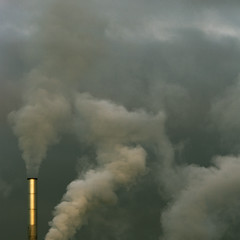|
Parallel texts are a wonderful way of learning a lot of useful words and expressions especially when it comes to complex reading material. And this is how to study: read the Italian sentences first and when you don't understand something, just look at the English translation provided. Even if the English translation is not literal, you will easily be able to reconstruct the meaning of the whole sentence (if not, just drop us a line!) We provide two kinds of layouts for our parallel texts: horizontal and vertical (or tabled). This is because each layout has its own merits and can help you study better. Finally, the pronunciation guide is the definitive tool to understand how to pronounce Italian. Don't forget to look up our special page designed to teach you how to use it. Damage to Natural Habitats
PRONUNCIATION ORIGINAL TEXT GOOD TRANSLATION
IL D└NNO └LLHI └BITAT NATUR└LI
PRONUNCIATION
ORIGINAL TEXT
GOOD TRANSLATION
IL D└NNO └LLHI └BITAT NATUR└LI
IL DANNO AGLI HABITAT NATURALI
DAMAGE TO NATURAL HABITATS
Un Óbitat Ŕ l'ambiŔnte nÚl kwÓle výve un animÓle ˇ ¨na pyÓnta, jeneralmÚnte definýto s¨lla bÓze dÚlla s¨a vejetatsyˇne Ú dÚlle karatterýstike fýzike.
Un habitat Ŕ l'ambiente nel quale vive un animale o una pianta, generalmente definito sulla base della sua vegetazione e delle caratteristiche fisiche.
A habitat is the environment in which an animal or plant lives, generally defined in terms of vegetation and physical features.
UššŔlli kˇme il grÓkkyo pÚr ezŔmpyo, si n¨trono di Ŕrba da pÓskolo Ú pyÓnte kÚ krÚskono nÚi kÓmpi da fyenajˇne.
Uccelli come il gracchio per esempio, si nutrono di erba da pascolo e piante che crescono nei campi da fienagione.
Birds like the Chough, for instance, feed on insects mainly in areas used for extensive cattle and livestock rearing.
Ma mˇlti Óbitat stÓnno skomparŔndo a kÓuza dÚi mŔtodi agrýkoli intensývi kÚ p˛ssono kreÓre ambiŔnti ostýli pÚr lhi uššŔlli, lhi animÓli Ú lÚ pyÓnte selvÓtike.
Ma molti habitat stanno scomparendo a causa dei metodi agricoli intensivi che possono creare ambienti ostili per gli uccelli, gli animali e le piante selvatiche.
But many habitats like these are disappearing because of intensive farming methods that can create hostile environments for birds, animals and wild plants.
Kozý, la diminutsyˇne dÚlla popolatsyˇne di alk¨ne spŔše Ŕ dov¨ta al degrÓdo ˇ addiritt¨ra Ólla skompÓrsa dÚi lˇro Óbitat naturÓli.
Cosý, la diminuzione della popolazione di alcune specie Ŕ dovuta al degrado o addirittura alla scomparsa dei loro habitat naturali.
Thus, the decline in the population of some species is due to their natural habitats being damaged, or disappearing altogether.
PÚr sŔkoli, kwÓndo lÚ šittÓ avÚvano dimensyˇni limitÓte, i mŔtodi agrýkoli traditsyonÓli alimentÓvano la kampÓnnha Ú permettÚvano Ólle pyÓnte Ú Óllhi animÓli di prosperÓre.
Per secoli, quando le cittÓ avevano dimensioni limitate, i metodi agricoli tradizionali alimentavano la campagna e permettevano alle piante e agli animali di prosperare.
For centuries, when towns and cities were limited in size, traditional farming methods nurtured the countryside and allowed plants and animals to flourish.
Ma in tŔmpi py¨ rešŔnti i mŔtodi agrýkoli intensývi Ú l'inkontrollÓta espansyˇne dÚll'ind¨strya Ú dÚl turýzmo Ónno inglobÓto sŔmpre py¨ tŔrra konfinÓndo la fÓuna in Óree sŔmpre py¨ ristrÚtte.
Ma in tempi pi¨ recenti i metodi agricoli intensivi e l'incontrollata espansione dell'industria e del turismo hanno inglobato sempre pi¨ terra confinando la fauna in aree sempre pi¨ ristrette.
But more recently, intensive agricultural practices and the unchecked expansion of industry and tourism have used up more and more land, driving out wildlife or confining it to smaller areas.
L'inkwinamÚnto Ú i projŔtti di injennherýa šivýle, kˇme lÚ dýge, Ónno kompromÚsso mˇlti Úco_sistŔmi fluvyÓli Úd estwÓri europŔi.
L'inquinamento e i progetti di ingegneria civile, come le dighe, hanno compromesso molti ecosistemi fluviali ed estuari europei.
Pollution and civil engineering projects, such as dams, have harmed many European river ecosystems and estuaries.
Intˇrno Ólle n˛stre k˛ste, l'inkwinamÚnto Ú il depauperamÚnto dÚlle rizˇrse ýttike minÓššano lÚ spŔše marýne kˇme lÚ f˛ke m˛nake Ú lÚ tartar¨ge.
Intorno alle nostre coste, l'inquinamento e il depauperamento delle risorse ittiche minacciano le specie marine come le foche monache e le tartarughe.
Around our coastlines, pollution and over-fishing threaten marine species. Some such as Monk seals and Turtles are sometimes killed by fishing gear and are also threatened by the degradation of our beaches and seaside.
In Eur˛pa, lÚ lÓnde, lÚ stÚppe Ú lÚ torbyŔre sˇno diminuýte dÚl sessÓnta-novÓnta pÚr_šŔnto .
In Europa, le lande, le steppe e le torbiere sono diminuite del 60-90 %.
Around Europe, heathlands, steppes and peat bogs have shrunk by 60-90%.
In SpÓnnha, FrÓnša Ú ItÓlya, il settÓnta_šýnkwe pÚr_šŔnto dÚlle d¨ne sˇno skompÓrse fin dall'inýtsyo dÚl sŔkolo skˇrso.
In Spagna, Francia e Italia, il 75 % delle dune sono scomparse fin dall'inizio del secolo scorso.
In Spain, France and Italy, 75% of dunes have disappeared since the beginning of the last century.
La spakkat¨ra dÚllhi Óbitat divýde Ónke lÚ popolatsyˇni lÚ ¨ne dÓlle Óltre.
La spaccatura degli habitat divide anche le popolazioni le une dalle altre.
Breaking up habitats also separates populations from one another.
KwÚsto fen˛meno Ŕ n˛to kˇme insulariddzatsyˇne Ú pw˛ portÓre all'estintsyˇne poikÚ l'akkoppyamÚnto indebolýshe la popolatsyˇne.
Questo fenomeno Ŕ noto come insularizzazione e pu˛ portare all'estinzione poichÚ l'accoppiamento indebolisce la popolazione.
This is known as insularisation, and it eventually leads to extinction as inbreeding weakens the population.
Kwýndi Ŕ importÓnte salvagwardÓre nˇn sˇlo lÚ spŔše ma Ónke lhi Óbitat in k¨i Ússe vývono.
Quindi Ŕ importante salvaguardare non solo le specie ma anche gli habitat in cui esse vivono.
So it is important to preserve not only species but also the habitats where
they live.
| |||||||||||||||||||||||||||||||||||||||||||||||||||||||||||||||||||





